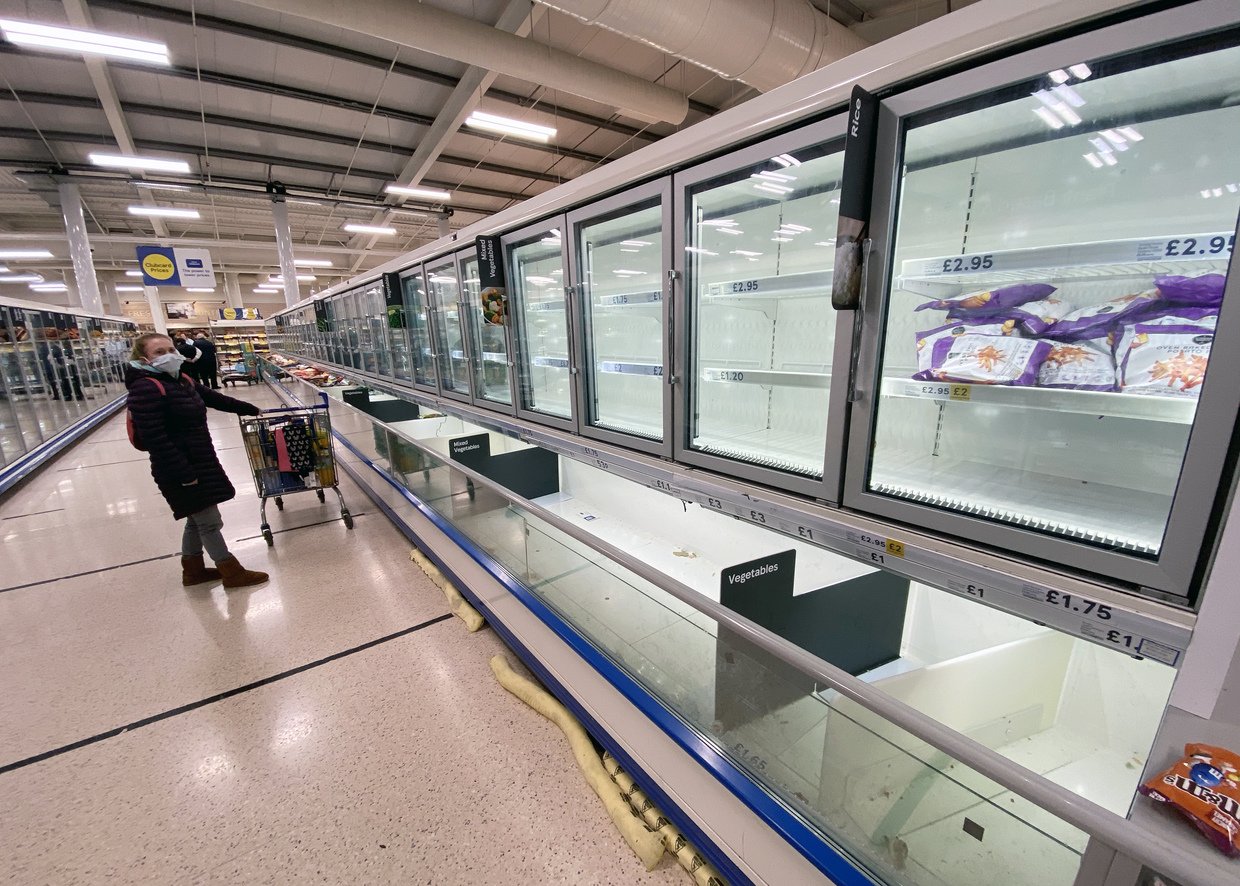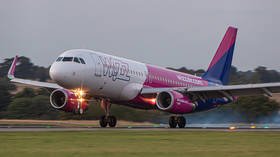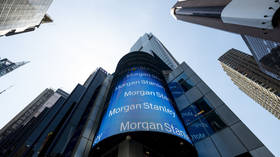Brexit to blame for disruption of food supply in N. Ireland, says Irish FM, amid reports of ‘bare’ shop shelves
Problems with food supply into Northern Ireland from Great Britain are “clearly a Brexit issue”, Ireland’s foreign affairs minister has said, amid reports of food shortages and “bare” supermarket shelves.
Speaking to ITV on Wednesday, Simon Coveney said the shortages were “part of the reality” of the UK leaving the EU. “Let’s not pretend Brexit doesn’t force that kind of change,” he added.
UK International Trade Secretary Liz Truss, who also took part in the program, agreed with Coveney, admitting that Brexit had contributed to food shortages in supermarkets in Northern Ireland. She still defended the situation, however, saying that “a period of adjustment” was always expected and adding that the supermarket shelves “were being stocked.”
Also on rt.com 'Urgent intervention': UK supermarkets appeal for govt action to tackle N. Ireland post-Brexit food supply problemsSome disappointed shoppers in Northern Ireland have been taking to Twitter in recent days, reporting empty shelves in supermarkets, while others vented their anger at the Brexit situation in general.
My local Tesco Extra last week. We've got shortages and empty shelves everywhere in Belfast. There are medicine shortages which I know are being covered for the time being by switching to generic brands and dispensing alternative combinations (2 x 10mg rather than 20mg tablets). pic.twitter.com/k1CNSTfahc
— 🇪🇺 Nicholas Birse 👨🔬 (@njbirse) January 18, 2021
You’ve no idea the mess here in Northern Ireland 😢 goods are not getting through and shelves are becoming empty, I’m hoping things improve ASAP ? Xxx🍀 thankfully I can get wonderful fish locally 👌 pic.twitter.com/N4e5xaGnRW
— Brenda Irwin (@BrendaI58824950) January 15, 2021
I am still waiting on someone to tell me if a single person or business had benefited from Brexit! Utter shambles by @BorisJohnson
— gu51 (@gu5113) January 21, 2021
One of Britain’s largest supermarket chains, Tesco, said last week that deliveries of goods to Northern Ireland, including ready meals and fresh fruit, were experiencing disruptions due to Brexit.

Despite being part of the UK, Northern Ireland has remained in the EU single market post-Brexit. The ‘Irish Sea Border’ between the two now means all commercial goods brought into Northern Ireland from Great Britain needs a customs declaration. Trade is now regulated by the so-called Northern Ireland Protocol and requires health certifications on animal-based foods. Tariffs have also been introduced on some goods considered “at risk” of moving into the European Union (ie, crossing the land border into the Republic of Ireland).
Currently a number of grace periods lasting for up to six months are in operation before the protocol comes into full force. Among other measures, the grace periods reduce the number of veterinary health certificates required on animal-based food products.
Yet, with supply problems apparently already beginning despite the grace period, many fear the situation is only going to get worse.
The Northern Ireland/Britain international border mess was one of many predictable outcomes of Brexit. This is just the beginning of the trainwreck.
— Leland McKnight - CEO 💰 💰 💰 (@LelandEMcKnight) January 21, 2021
Some British politicians have recently tried to play down the influence of Brexit on food supply disruption in Northern Ireland.
On Tuesday, British Conservative Party politician who serves as Secretary of State for Northern Ireland Brandon Lewis said that the food supply disruption there is down to coronavirus and has “nothing to do with the Protocol.”
His comments prompted a withering response from Northern Ireland’s Agriculture Minister Edwin Poots, who called him “the emperor with no clothes – but instead of a small boy pointing out he's naked, the whole crowd is pointing it out.”
Irish FM Coveney also dismissed Lewis’ claim on Wednesday, saying “The supermarket shelves were full before Christmas and there are some issues now in terms of supply chains, and so that’s clearly a Brexit issue.”
The fact that Northern Ireland has remained in the EU’s single market is seen by some as an indication that the North is moving further away from the UK and taking a step towards reunifying with the Republic to the south, 100 years after it was partitioned.
Guess the next step is for Ireland to reunify
— Mark (@mark147852) January 21, 2021
Annex it to the Rep. of Ireland where it belongs. Problem solved.
— Orlando Lavender (@LavenderOrlando) January 21, 2021
That sentiment was echoed by former Chancellor of the Exchequer George Osborne, who said this week that Northern Ireland was “heading for the exit door” from the UK. Writing in the London Evening Standard, he said that the majority of the English public “will not care” if Northern Ireland exits the UK to create a united Ireland. He blamed Brexit for “unleashing” English nationalism and making the future of the United Kingdom a major political problem for years to come.
Also on rt.com United Ireland ‘within 25 years’ thanks to ‘disaster’ Brexit, UK’s former Home Secretary predictsThink your friends would be interested? Share this story!














